You could say that hormonal birth control was my “gateway drug” to natural women’s health. I grew up in a very conventional 90s/2000s home with two working parents. I went to public school, and though we ate well, we still followed the trends of “fat-free” and popping a painkiller for menstrual cramps.
I’m exceedingly grateful for my parents and upbringing, but I can’t say that I learned my natural living habits from them. And though my mom and two older sisters gave me a good foundation in not fearing my menstrual cycle, I still had very little understanding of how it all worked and what a normal period looked like.
So when it came to my engagement to my now-husband of 11 years, hormonal birth control for family planning was the only option that made sense to me. But more on that later. To begin, I’d love to go back to the start of my menstrual cycle. Even back then, I can see that I was being led to ask more questions about my overall health through my menstrual cycle.
It may seem like a pretty common story, but I am eternally grateful to birth control for making me ask more questions, and eventually opening up the world of women’s health to me.
It may seem like a pretty common story, but I am eternally grateful to birth control for making me ask more questions, and eventually opening up the world of women’s health to me.
Early years of my menstrual cycle
I was 12 years old when I got my first period. I have zero memory of having a “pre-period” talk with my mom, but I had two older sisters, so I guess I just knew what was coming. After my first bleed, I proudly went to my other sisters and said, “I’m a big kid now!” (from the early 2000s jingle).
I was so proud of my body, and I felt so grown-up. My mom sat me down and told me, “Cathryn, just because you have a period now doesn’t mean you get to be a brat whenever you feel like it. Never use your period as an excuse for a bad attitude.” I must admit, I deflated when she said it. I was a preteen, and felt entitled to all of my feelings. But I do believe she was steering me on the right path, in her own way.
As the years went by, I had irregular and painful periods. My mom always said the irregular part was normal, and eventually, I would fall into a normal cycle pattern. And for the pain, she gave me an over-the-counter painkiller and a heating pad. I recall my sisters having pretty painful periods, but I’m not sure whether they were also irregular or not.
It’s all we knew. We didn’t question heavy or painful periods. We didn’t realize that what I was eating (or not) could be the cause of pain, or the fact that I was a super active ballerina could be influencing my irregular cycles.
Either way, it wasn’t until I was engaged in college that I started to worry about my irregular cycles.
Starting NuvaRing
Like I said, I had two older sisters, and by the time I got to college, they were both married. I vaguely knew that my oldest sister was using Natural Family Planning (NFP), and my second sister had sworn off all hormonal birth control, but I was convinced that, because I was in nursing school, I nécessaire to be on birth control.
I also can’t deny that my mom might have said, “NFP is as good as pregnant, and you’re not ready for that in nursing school, right? The rhythm method just isn’t that reliable.” So, whether it was my rebellion, my fear, or my lack of understanding–or maybe all three–I chose to try birth control before getting married to see how my body adjusted to it.
I am so glad that I did. I was getting married in May, and though we were not sexually active, I started with the NuvaRing in January to make sure I was fully adjusted come May. And I kid you not, from the moment I put that Ring in, I was different. I had insomnia for the first time in my life, and slept maybe 1 hour a night for two weeks.
I was getting married in May, and though we were not sexually active, I started with the NuvaRing in January to make sure I was fully adjusted come May. And I kid you not, from the moment I put that Ring in, I was different. I had insomnia for the first time in my life, and slept maybe 1 hour a night for two weeks.
I went back to the Nurse Practitioner (NP) and told her what was happening, and she said, “There’s no way it’s from the Ring. There are no documented cases that it causes insomnia. Just keep it another week to finish the cycle and see how you feel, then come back in.”
At that point in my life, I did exactly as the medical professionals told me, and never questioned it. So even though my gut was telling me the Ring was causing my insomnia, I didn’t take it out and waited another week.
Once I took the Ring out, I slept. All night. But this, unfortunately, wasn’t enough to deter me from trying another birth control option.
Out with the NuvaRing, in with the mini-pill
At this point, I was only 3 months away from getting married, and I had just been accepted into nursing school. A honeymoon baby was not in the cards.
Next, I tried the mini-pilule because my mom had had a “good” experience with it for many years. But this made me irritable and anxious almost immediately, and I experienced very annoying breakthrough bleeding.
Breaking up with hormonal birth control for good
So I tried another, and then another brand of oral contraceptive. As we approached our first wedding anniversary, I was so tired of trying one pill after another, that I decided to quit all of it. And as for a baby, my husband and I both agreed that we would gladly welcome a baby if God gave us one, rather than continue to go through more trial and error.
With that one seemingly small decision to forgo birth control, my whole life changed. And not because I got pregnant right away, but because I didn’t.
When I learned that the pill can’t fix irregular periods
I’m sure by now, we’ve all heard, “The pill will fix your irregular cycles!” But oh, how it does not. My irregular cycles as a teen were just as “regular” in my early 20s (that is to say, they weren’t), but now I faced the reality of wanting a baby and not getting one.
The nurse practitioner who initially prescribed hormonal birth control said it would take a few cycles to regulate, but my period should come back pretty quickly. But after six months had passed, I still didn’t have a period.
I was assumed to have PCOS
She then diagnosed me with Syndrome des ovaires polykystiques (SOPK), because I had high testostérone and some misplaced facial hair. But she never did an ultrasound to see if I had any cysts on one or both ovaries, and I wasn’t in the overweight category. The treatment she prescribed was daily progesterone to encourage my period to come back.
On the progesterone, I did get a random period or two, but they were irregular. Looking back now, I believe those cycles were likely anovulatory, because I don’t recall observing any cervical fluid during those years. She also put me on Metformin, which is supposed to help with PCOS symptoms. Unfortunately, it did nothing but give me horrible headaches and made my blood sugar so unstable that I had fainting episodes.
The ‘cure’ was worse than the disease, so I turned to non-pharmaceutical options
After three months of pharmaceuticals for my irregular cycles and presumed PCOS, I decided to start digging deeper into herbal therapies, graphique de la température, and getting to the root cause of my irregular periods.
I discovered Vitex (chaste berry) and read about its history of treating women with anovulatory cycles. In December, I took it, and 29 days later I ovulated for the first time since I could remember!
It felt magical! I continued temping (i.e., taking my basal body temperature every morning) and noting my cervical fluid, and I was mesmerized by my body and everything it was telling me. This unlocked something in me that I didn’t know existed. For the first time, I recognized that God created my body to work, and I just needed to start listening in order to learn more about it.
Since quitting hormonal birth control, I haven’t looked back
After that initial cycle, I went on to have a period every month. My cycles were on the longer end of normal—about 32-34 days—but I was so happy and thankful to finally cycle regularly. Unfortunately, I still didn’t conceive, and what followed was another year filled with two miscarriages before I finally conceived my first of four healthy children. Now, my husband and I are very thankful for natural family planning, and have used it to both plan and space our children.
And what about my nursing degree? Well, when I started nursing school, I swore I’d never be interested in women’s health because I was meant to be a pediatric nurse. But God certainly had other plans. Through my journey with hormonal birth control and trying to conceive (TTC), I found a new interest: natural women’s health.
And that’s where I am today. After working a few years as a labor and delivery nurse, I decided to be a stay-at-home mama, but I still use my nursing license as a writer, childbirth educator, occasional doula, and women’s health advocate. I’m amazed when I think about where I am now, and how it all started because of hormonal birth control.
Who knew shutting off my hormones would eventually turn on so much more?


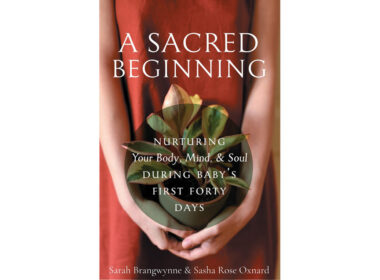
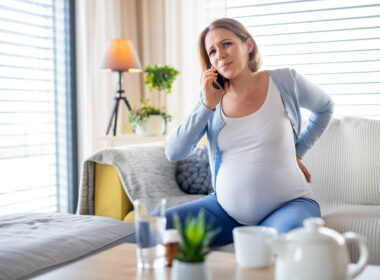
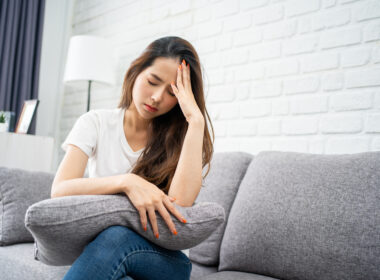
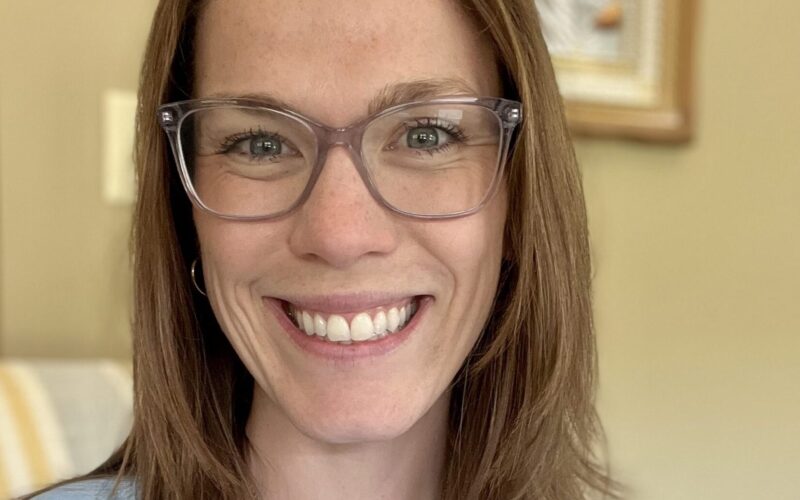

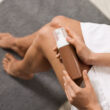
What an inspirational story. I work in a pregnancy center and teach a survey class on fertility awareness. So many women have told me they are amazed at the story their reproductive cycles tell them about their health. They also always remark that they should have been taught about cycle syncing earlier. I refer them to NW all the time;-)